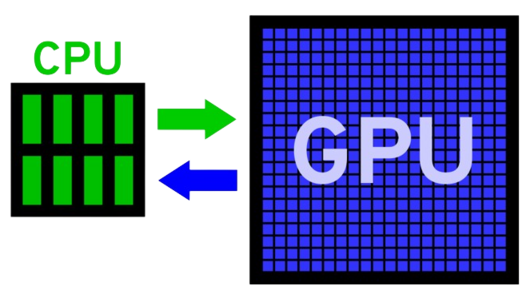Höchstleistungsrechenzentrum Stuttgart

11. Nov. 2025
08:45
20. Nov. 2025
12:30
Englisch
Basis
Themenbereiche ThemenGPU-Programmierung
For part 1 (introductory)
Programming experience in any of C, C++, or Fortran. Exercises will use a Linux cluster. Therefore you should have some basic knowlegde about how to work with a Linux shell and a text editor in a shell. Resources for this could be e.g. https://ubuntu.com/tutorials/command-line-for-beginners and for an editor https://opensource.com/article/19/3/getting-started-vim. Some knowledge about parallel programming is a plus.
For part 2 (advanced)
Additionally to the prerequisites above you should be familiar with the topics of part 1.
Tobias Haas (HLRS)
After this course, participants will:
All times are local times in the central European time zone (Berlin).
Drop in to the video conference (8:45 - 9:00)
Course will take place from 9:00 - 12:30 on each day.
Cluster dry run on Mon Nov 10 at 2 pm
Day 1
Day 2
Day 3
Day 4
Day 5
Day 6
Day 7
Each participant will get access to all slides (PDF).
Although this is an online course, the exercises will be very interactive using break out rooms. Participants will work on HLRS's systems.
Register via the button at the top of this page.
We encourage you to register to the waiting list if the course is full. Places might become available.
Our course fee includes coffee breaks (in classroom courses only).
For lists of EU and EU-associated coutries, and PRACE countries have a look at the Horizon Europe and PRACE website.
Lucienne Dettki, phone 0711 685 63894, training(at)hlrs.de
Tobias Haas, phone 0711 685 87223, training(at)hlrs.de
HLRS is part of the Gauss Centre for Supercomputing (GCS), together with JSC in Jülich and LRZ in Garching near Munich. EuroCC@GCS is the German National Competence Centre (NCC) for High-Performance Computing. HLRS is also a member of the Baden-Württemberg initiative bwHPC. Since 2025, HLRS coordinates HammerHAI.
This course is provided within the framework of the bwHPC training program.
See the training overview and the Supercomputing Academy pages.
See also information about the HLRS training department and staff.
März 23 - Apr. 17, 2026
Hybrid, Stuttgart
Englisch
Apr. 21 - 24, 2026
Online
Englisch
Juli 14 - 17, 2026
Stuttgart
Englisch
Okt. 27 - 28, 2026
Online
Englisch